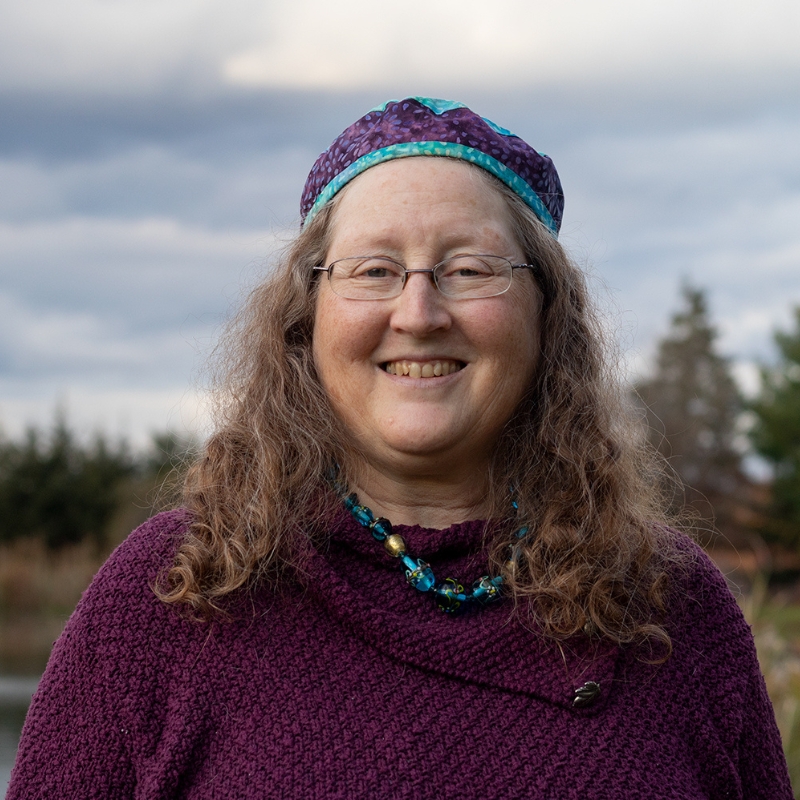Fear: of the other
Fear: they are more powerful than you – you are not powerful enough
Fear: they seem so much bigger – you feel small, like a grasshopper
Fear: you feel inferior – they seem superior
Fear: they will overwhelm you – there are so many of them
Fear: there is not enough room for both you and them
Fear: knowing them will change you – knowing you won’t change them
Fear went viral. One post amplified another.
“They made their report.”
In Parshat Sh’lach-Lecha, Moses sends 12 scouts across the Jordan for some advance intelligence. Ten of the 12 report being frightened by the very tall inhabitants, the Anakites. These scouts have encountered the other. Throughout the parshah, encountering the other occurs both between the Israelite community and other groups, as well as within the Israelite community, between native-born and immigrant community members.
How do we categorize others as friends, foes, or foreigners? Both within our community and with groups outside of our community, we can find ourselves othering as a way to deal with our own fears and discomforts with those who are different from us. Even within us, we may seek to deal with what we don’t like about ourselves by othering those parts of ourselves.
Find more resources for Sh’lach-Lecha
When asked to report back on their findings, the scouts didn’t just stick to their impressions of the Anakites. They focused on comparing themselves to these tall people: “We looked like grasshoppers to ourselves, and so we must have looked to them!” And in a move reminiscent of the fearmongering we see on social media today, they began to claim that they also saw Nefilim (giants of uncertain origin from Genesis 6:1-4), amplifying the sense of threat and stoking fear among the Israelites.
Many commentators have written about the pitfalls of these comparisons and how we shouldn’t allow our fears to distort our self-image. When we react from our subconscious survival instincts, we may automatically equate size with power. Yet we also have the intellectual ability to consciously observe, analyze, and reason, which can help us consciously consider size and power as having many possible relationships. (Side note: Grasshoppers actually have much more power than their size indicates.) When we encounter the other, our intelligence gives us the ability to go beyond our unconscious assumptions about size and other attributes, to go beyond stereotypes, if only we will use it.
Later in Sh’lach-Lecha, we read, “There shall be one law for you and for the resident stranger; it shall be a law for all time throughout the ages. You and the stranger shall be alike before God.” In the U.S., this principle of one law for everyone is particularly resonant this week, as we observe Juneteenth. Although the Emancipation Proclamation, making one law for everyone, went into effect on January 1, 1863, it was not sufficiently enforced for everyone. Until June 19, 1865, when Union troops enforcing the Emancipation Proclamation reached Galveston Bay, TX, there were African Americans still being illegally enslaved. Juneteenth celebrates the day when the law for everyone in theory became the law for everyone in practice.
Find more commentaries on social justice, leadership, and philosophy.
This is not the only time God gives us this message in the Bible. There are multiple passages about the importance of treating the ger, the stranger, equitably. These passages come in three varieties: (1) to love the ger, (2) to refrain from wronging toward or mistreating the ger, and (3) that there should be one law that applies equally to any resident, whether they were born into the community or came later to live there. Especially for the first two, the reason given is based in empathy: Remember that you yourselves were gerim, strangers, in Egypt. Loving someone and not mistreating them requires empathy. While the Israelites as a group might have amicable, hostile, or neutral relationships with other groups, within the Israelite community, everyone should treat one another with dignity, respect, and care, even across differences.
God tells us there is a single law for all humans residing together in the community, not just then, but always. The context of this passage is about bringing burnt offerings, one of the most important ways that the Israelites could connect with God. Even if you, as a native-born Israelite, are feeling a lack of empathy for someone because they do not have “birthright citizenship” but are temporary or permanent residents, God does not make that distinction. God wants to be in relationship with both of you. May this profound teaching inspire us to resist the dehumanization of any group of human beings, to take action with empathy, and to encourage that empathy in others.
If I will not be for myself, who will be for me (Hillel)
Walk on in the face of your fear
If I am only for myself, what am I (Hillel)
You and the stranger will be alike before God (Numbers 15:15)
And if not now, when? (Hillel)
Know the importance of the right time.
Hazzan Abbe Lyons serves as Interim Director of the ALEPH Cantorial Program, faculty for the Davennen’s Leadership Training Institute, and Jewish chaplain for Hillel at Ithaca College. Her published works include “Jewish Liturgy: A Guide for Everyone,” poetry, and alternative social justice haftarot. Her recording credits include “Listen!” (Resonate, 2017), “Behold!” (Vocolot, 1997), “Roots and Wings” (Vocolot, 1992), and “Household Chores” (Abbe Lyons, 1990).

